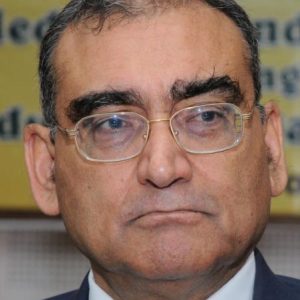
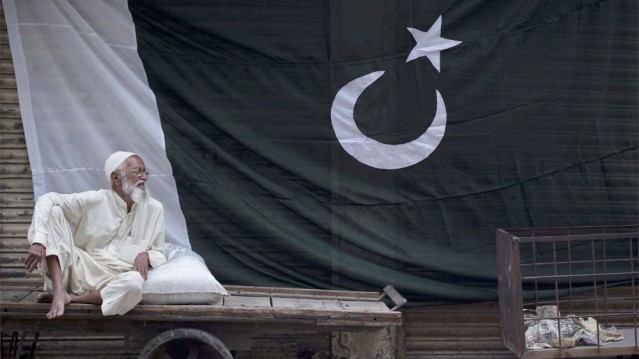
PAKISTAN WAS created in 1947 as an Islamic state, but most Pakistanis suffer from a severe identity crisis. What is their identity? What is it that marks them different from others?
 Many say their identity is being Muslims, but there are perhaps more Muslims in India than in Pakistan.
Many say their identity is being Muslims, but there are perhaps more Muslims in India than in Pakistan.
I submit that their identity is being Indians.
Is Pakistani culture part of Arab culture or Indian culture?
I submit it is part of Indian culture, and no amount of ‘Arabisation’ (like calling the government ‘Madina ki riyaasat’) can undo this.
For instance, in large parts of our subcontinent we both speak the same language Hindustani, called Hindi in India and Urdu in Pakistan, though they are almost the same, and culture revolves mainly around language.
Urdu is an indigenous (desi) language, unlike Persian and Arabic which are foreign languages. Let me explain this.
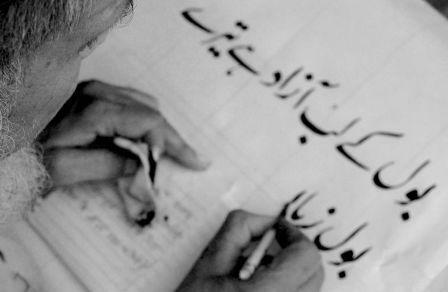
The test to determine to which language a sentence belongs is to find out to which language the verbs in it belong, for it is the verbs which determine that, not the nouns or adjectives.
The verbs in Urdu (called ‘kriya’ in Hindi and ‘feyl’ in Urdu) are all in Hindustani or simple Hindi, the language of the common man (Urdu being Persianised Hindustani and Hindi being Sanskritised Hindustani).
The nouns and adjectives in Urdu are often in Persian or Arabic, but it is the verb which determines to which language a sentence belongs, not the nouns or adjectives.
Since the verbs in Urdu are all in Hindustani, not Persian or Arabic, Urdu is an Indian language, being a special kind of Hindustani, and it is not a special kind of Persian or Arabic (see my article ‘What is Urdu’ online and my talk on YouTube).
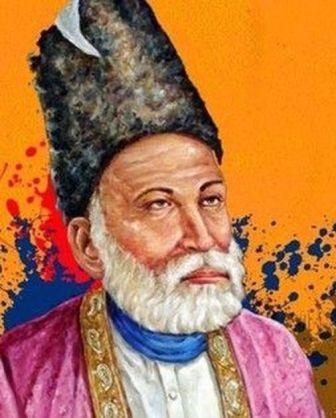
Urdu poetry is loved by both Indians and Pakistanis. Often members of parliaments of both India and Pakistan quote Urdu shers or couplets in their speeches, and mushairas are frequently held in both countries.
Take for instance the sher of the greatest Urdu poet Ghalib (who lived in Delhi in India, not in Saudi Arabia):
“Dekho mujhe jo deeda-e-ibrat nigah ho
Meri suno jo gosh-e-naseehat niyosh hai”
Here the verbs ‘dekho’, ‘suno’, ‘hai’ are all in Hindustani.
Similarly one can take the shers of any Urdu poet and he will find the verbs invariably in Hindustani (though the nouns and adjectives will often be in Persian or Arabic). If the verb was in Persian, it would become a Persian couplet, not Urdu, and if it was in Arabic it would become an Arabic couplet.
This proves that Urdu is an indigenous language of the Indian subcontinent, and is not a foreign language like Arabic. So how can Pakistani culture be part of Arabic culture?
It is true that the Quran is in Arabic, and the Namaz is recited in Arabic. But Latin was the language of the Church in Europe for centuries and church services were in Latin, including in France, England, Germany and Spain. Did that make those countries part of Italy?
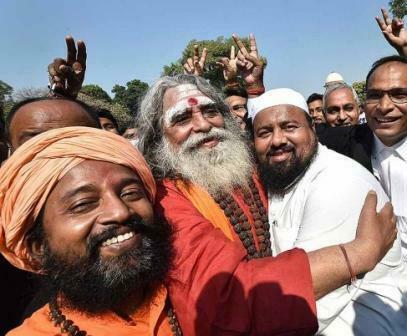 No doubt Hindus and Muslims have different religions, but for centuries they lived amicably, helping each other, and celebrating each other’s festivals.
No doubt Hindus and Muslims have different religions, but for centuries they lived amicably, helping each other, and celebrating each other’s festivals.
It was only the British divide and rule policy, instituted after the Great Mutiny of 1857 (see ‘History in the service of imperialism’ by BN Pande online) which artificially sowed the seeds of hatred in us, which resulted in Partition.
Pakistan and India are really one nation, having the same culture, and were one since Mughal times. Partition was a historical British swindle, on the basis of the bogus two nation theory (that Hindus and Muslims are two separate nations).
We were temporarily divided, but are sure to peacefully and voluntarily reunite one day, like West and East Germany, under a secular government led by modern minded leaders, though that will take time.
Some say that Indians and Pakistanis hate each other. The truth is that this ‘hatred’ is artificially created by some vested interests.
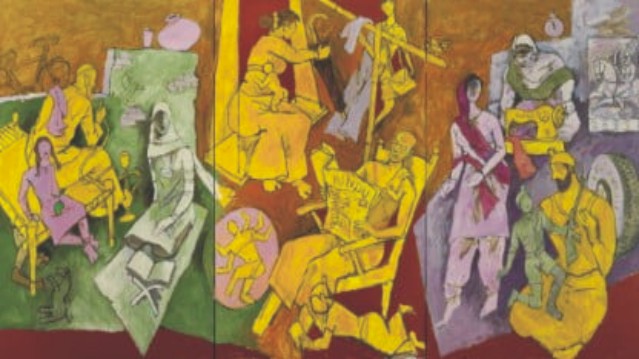 Whenever an Indian (whether Hindu or Muslim) goes to Pakistan he/she gets tremendous love and affection there, and the same happens when a Pakistani comes to India.
Whenever an Indian (whether Hindu or Muslim) goes to Pakistan he/she gets tremendous love and affection there, and the same happens when a Pakistani comes to India.
In fact India and Pakistan were one country from the time of Akbar, who had transferred the capital of the Mughal Empire from Agra to Lahore in 1585 (because of the threat of the Uzbek ruler), where he lived for 13 years.
Indians and Pakistanis have many similar food dishes (biriyani etc), attire (like shalwar kameez and sari worn by ladies), etc.
The famous Pakistani singer Iqbal Bano wore a sari while singing Faiz Ahmed Faiz’ revolutionary song ‘Hum Dekhenge’ in 1985 in Lahore Stadium in protest against Gen Zia ul Haq’s repressive military rule, and this poem is often sung or recited by students in India during their protests.
Indians and Pakistanis have the same classical music (khyaal, thumri, qawwali, etc)
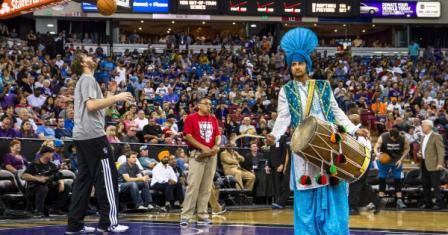 Indians and Pakistanis living abroad socialise and inter mix as if Partition had never taken place, and they often help each other. This I have personally noticed in my trips abroad.
Indians and Pakistanis living abroad socialise and inter mix as if Partition had never taken place, and they often help each other. This I have personally noticed in my trips abroad.
Once I went to Paris with my wife, and while walking on Champs-Elysees saw two young men selling balloons. I thought they were Indians, and started talking with them in Hindustani. They replied in Hindustani, one was from Lahore, and the other from Faisalabad.
They said they were selling balloons because they had to wait for another few months for their work permits, and had to earn some money in the meantime. They were so happy to see and talk to us, as if they had met someone from their own homeland, and they offered us cold drinks.
Once my wife and I had lost our way in Rome, and a Pakistani, seeing our plight spoke to us in Hindustani and told us not to worry. He then accompanied us on a bus all the way to our hotel (although his own destination was in the opposite direction).
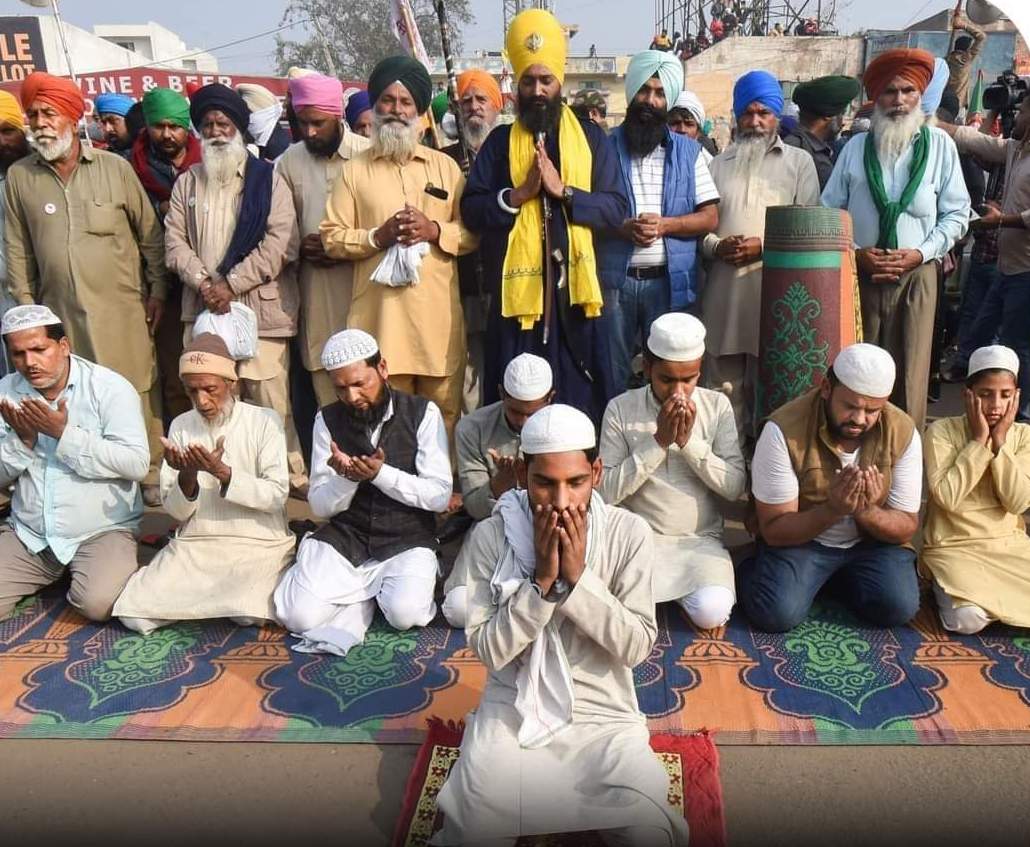
Would any Arab have done this for us? I doubt it. So does Pakistan belong to Arabic culture or Indian culture?
In Pakistani history books Mohammed bin Qasim, who invaded Sind, and Mahmud Ghaznavi, who destroyed the Somnath temple in Gujarat, are glorified as heroes, though they were just looters.
It is time Pakistanis start regarding Maharajat Ranjit Singh, who was thoroughly secular, and Bhagat Singh, the great revolutionary, who both lived in present Pakistani Punjab, as their real heroes.
It is time that Pakistanis realise they are part of Indian culture, and that they are Indians. ![]()
___________
Also Read:
TRUTH VS FALSEHOOD: BBC – Who is afraid?
Mughal Gardens – Name Changed, But Why?
Industrialization versus Environmental Degradation
Punjab – How a deadly cocktail of Agri-Water-Energy nexus going to destroy it?

Disclaimer : PunjabTodayTV.com and other platforms of the Punjab Today group strive to include views and opinions from across the entire spectrum, but by no means do we agree with everything we publish. Our efforts and editorial choices consistently underscore our authors’ right to the freedom of speech. However, it should be clear to all readers that individual authors are responsible for the information, ideas or opinions in their articles, and very often, these do not reflect the views of PunjabTodayTV.com or other platforms of the group. Punjab Today does not assume any responsibility or liability for the views of authors whose work appears here.
Punjab Today believes in serious, engaging, narrative journalism at a time when mainstream media houses seem to have given up on long-form writing and news television has blurred or altogether erased the lines between news and slapstick entertainment. We at Punjab Today believe that readers such as yourself appreciate cerebral journalism, and would like you to hold us against the best international industry standards. Brickbats are welcome even more than bouquets, though an occasional pat on the back is always encouraging. Good journalism can be a lifeline in these uncertain times worldwide. You can support us in myriad ways. To begin with, by spreading word about us and forwarding this reportage. Stay engaged.
— Team PT


Copyright © Punjab Today TV : All right Reserve 2016 - 2024 |